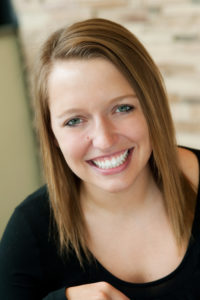Advocating For Students
 Advocating For Students
Advocating For Students
Beverly Stuckwisch, a 2012 Knowles Teaching Fellow, is committed to acting as an advocate for her students. With advocacy in mind, she and a colleague helped students establish the first gay-straight alliance (GSA) at their school in 2016. At the outset, the GSA operated largely as a social group. In this capacity, they met little resistance. They began to encounter resistance when GSA members expanded their efforts to include activism. In response to complaints from parents and teachers, and a violation of a rarely enforced rule, the principal advised Beverly and her colleague that the compilation pride flag created by GSA members would have to be removed from where it hung in the hallway of the school. Unable to find a way to discuss the issue with her principal, Beverly avoided him for months. At a Knowles meeting, Beverly shared her fear of addressing conflict. Other Fellows who felt the same way decided to read and discuss Difficult Conversations as a group (Stone, et al., 2010). Using what she learned from the book, and discussed with other Knowles Fellows, Beverly scheduled a meeting with the principal that included stakeholders such as the superintendent, guidance counselors, school staff, GSA members and one parent. To ensure everyone was on the same page, she shared a document outlining the purpose of the conversation with all participants. The conversation proved to be extremely productive and informative for all in attendance. Leaving the conversation, the GSA chose to focus on programming designed to build an inclusive community for all students. Building on these efforts, Beverly lead a professional learning community focused on examining school culture and students’ experiences with harassment and bullying during the 2017–2018 academic year. PLC participants—14 staff members and four students—spent time analyzing data from interviews, surveys and focus groups they administered. The PLC also brainstormed ways to encourage school community members to think deeply about empathy and equity. As an example, PLC participants helped National Honor Society students combat bullying by preparing morning announcements to be shared during National Bullying Prevention Month; PLC members also worked with another student group to create a bulletin board displaying those announcements. The efforts of Beverly and her colleague led to the identification of other school-based allies for LGBTQ students—two other teachers who volunteered to advise the GSA after the departure of its founding advisers.